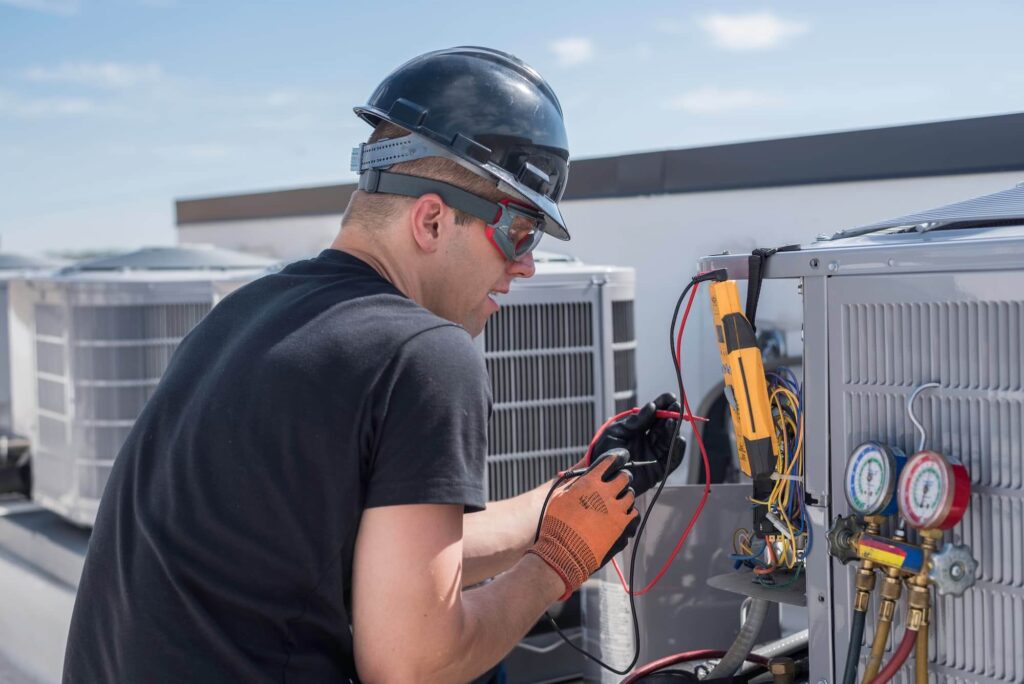Energy efficiency isn’t just about lowering your monthly utility bills—it’s also about reducing your carbon footprint and prolonging the lifespan of your home’s major systems. That includes your HVAC (Heating, Ventilation, and Air Conditioning) unit, which often accounts for a significant portion of a home’s energy use. Below, we’ve compiled ten actionable steps to help you save energy at home, all recommended by experienced HVAC professionals.
1. Schedule Regular HVAC Tune-Ups
Why it helps:
Your heating and cooling system runs more efficiently when it’s well-maintained. An annual or semi-annual tune-up can detect minor issues before they turn into major energy drains (or expensive repairs).
What to do:
- Hire a certified HVAC technician to check refrigerant levels, clean coils, replace filters, and test system performance.
- Consider a maintenance contract for consistent, routine service.
2. Change Air Filters Frequently
Why it helps:
A dirty air filter makes your HVAC system work harder by restricting airflow. This not only uses more energy but also wears out your equipment faster.
What to do:
- Check your air filters monthly.
- Replace them at least every 3 months—or more often if you have pets, allergies, or a larger household.
3. Use a Programmable or Smart Thermostat
Why it helps:
Smart or programmable thermostats allow you to set specific temperatures for different times of the day. This prevents unnecessary heating or cooling when nobody’s home.
What to do:
- Set higher temperatures in summer and lower in winter when your home is unoccupied or overnight.
- Take advantage of remote monitoring features to adjust settings from your phone.
4. Seal Gaps and Cracks Around Windows and Doors
Why it helps:
Air leaks can let in unwanted hot or cold air, making your HVAC system run longer to maintain the desired indoor temperature.
What to do:
- Inspect the seals around windows, doors, and any openings where utility lines enter your home.
- Use caulk or weatherstripping to seal noticeable gaps.
5. Insulate Your Attic and Walls
Why it helps:
Proper insulation keeps conditioned air (either heated or cooled) inside, reducing the workload on your HVAC system. Insulation is especially critical in attics, where a large percentage of heat transfer can occur.
What to do:
- Check the recommended R-value for insulation in your region.
- Consider upgrading or adding more insulation in your attic or walls if levels are below the recommended threshold.
6. Utilize Ceiling Fans Correctly
Why it helps:
Ceiling fans help circulate air, so you feel cooler in summer and warmer in winter (when blades rotate clockwise to push warm air down). They can reduce your reliance on the HVAC system.
What to do:
- Run fans counterclockwise in summer to create a cooling breeze.
- Switch to clockwise in winter at a low speed to move hot air from the ceiling back into the living space.
- Remember to turn fans off when you leave the room to save energy.
7. Close Blinds and Curtains During Peak Sun
Why it helps:
Direct sunlight can heat up your interiors quickly, forcing your AC to work harder. Conversely, in winter, letting the sun in can warm your home naturally.
What to do:
- Keep blinds or curtains closed during the hottest parts of the day in warmer months.
- Open them in winter to allow sunlight (and free heat) in.
8. Clean Vents and Registers
Why it helps:
Dust, debris, and even pet hair can accumulate in air vents, blocking airflow and making your HVAC system work harder.
What to do:
- Vacuum vents and registers regularly to remove dust.
- Keep furniture and rugs from blocking airflow around these vents.
9. Upgrade to Energy-Efficient Appliances
Why it helps:
Older appliances, especially HVAC units, refrigerators, and water heaters, can consume substantially more energy than modern, efficient models.
What to do:
- Look for the ENERGY STAR® label when replacing appliances.
- Focus on high-impact upgrades like a high-efficiency furnace or air conditioner, which can significantly lower your energy bills.
10. Inspect and Maintain Your Ductwork
Why it helps:
Leaky ductwork can lose heated or cooled air before it even reaches your living spaces. This problem forces your HVAC system to run longer, spiking energy use.
What to do:
- Schedule a duct inspection with a qualified HVAC technician.
- Seal any leaks with approved duct sealant or metal tape.
- Insulate ducts in unconditioned spaces, like attics or crawl spaces, to further boost efficiency.
Final Thoughts
By making these simple changes—backed by the expertise of our HVAC professionals—you can see noticeable improvements in your home’s energy efficiency. Not only will this help trim your monthly utility bills, but it will also prolong the life of your HVAC system and create a more comfortable living environment.If you’re ready to take the next steps toward a more energy-efficient home, reach out to our trusted HVAC technicians for an assessment. With proper maintenance, insulation, and a few strategic adjustments, you can reap the rewards of lower energy costs and a healthier home for years to come.



